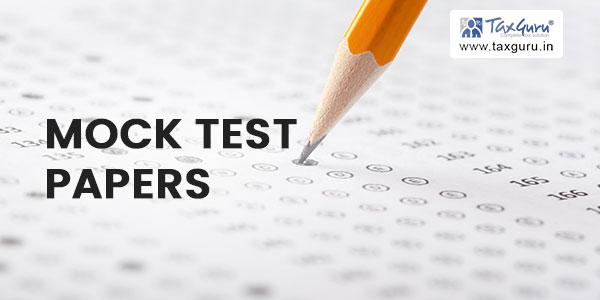Question on legal validity of newly inserted schedule in ITR-4 SUGAM of AY 2020-21
As we know, Schedule regarding ‘Financial Particulars of Business’ has been removed from ITR-4 SUGAM of AY 2020-21. And new schedule titled as ‘Particulars of Cash and Bank Transactions Relating to Presumptive Business’ has been inserted which asks following details.
 These details are compulsorily required to be filled for all cases where 44AD, 44ADA and 44AE is applicable or books of account not required to be maintained.
These details are compulsorily required to be filled for all cases where 44AD, 44ADA and 44AE is applicable or books of account not required to be maintained.
In point no. G2 and G3 in above mentioned schedule, it is said “drop down to be provided in e-filing utility”. Now the question may arise as to which types of options will be given in that drop down menu? Any who will decide those options? (1) CBDT by the way of issuance of further notification or (2) Principal Director-General of Income-tax (Systems) or Director-General of Income-tax (Systems) by the way of making a direct change in schema of ITR-4.

Analysis of above schedule in light of legal provisions:
Section 139 read with Section 295 of Income Tax Act, 1961 confers authority to notify the ITRs to Central Government which in turn delegates it to CBDT through Ministry of Finance. CBDT notifies ITRs for each Assessment Year under Rule 12 of Income Tax Rules.
Now Rule 12(4) reads as The [Principal Director-General of Income-tax (Systems) or Director-General of Income-tax (Systems)] shall specify the procedures, formats and standards for ensuring secure capture and transmission of data and shall also be responsible for evolving and implementing appropriate security, archival and retrieval policies in relation to furnishing the returns >[in the manners (other than the paper form) specified in column (iv) of the Table in sub-rule (3)][and the report of audit [or notice] in the manner specified in proviso to sub-rule (2)].
From preceding two paragraphs, it may be interpreted that CBDT, by the way of issuance of notification, can make changes in forms of ITRs. And duty of Principal Director-General of Income-tax (Systems) or Director-General of Income-tax (Systems) is to specify the procedures, formats and standards for ensuring secure capture and transmission of data. Thus, Principal Director-General of Income-tax (Systems) or Director-General of
Income-tax (Systems) can make only those changes in schema as per Rule 12(4) which are necessary to ensure secure capture and transmission of data.
Now, the question arises as to – can we say that the duty of Principal Director-General of Income-tax (Systems) or Director-General of Income-tax (Systems) as defined under Rule 12(4) of Income Tax Rules, 1962 confers a right to ask for additional details which are not part of notification issued by CBDT?
Its seems from reading of Rule 12(4) that Thus, Principal Director-General of Income-tax (Systems) or Director-General of Income-tax (Systems) can make only those changes in schema as per Rule 12(4) which are to ensure secure capture and transmission of data. How can one interpret that the additional details to be asked by the way of drop down menu in point no. G2 and G3 mentioned above are to ensure secure capture and transmission of data. Further, the word “Format” used in Rule 12(4) must also be interpreted with reference to reading of whole sentence which is followed by phrase “for ensuring secure capture and transmission of data.” So, here the meaning of term “Format” should be interpreted like XML format, number of decimal places allowed, minimum length of some field, and maximum length of some field and so on. But in no way, it appears to incorporate the powers to ask for those details which are not part of notification originally issued by CBDT.
Further amendment is required to be made in clause (f) of explanation to section 139(9) before making this schedule mandatory.
And above all these factors, it must always be considered by CBDT that ITR-4 SUGAM is for those people who do not maintain regular books of accounts, so details must not be asked in indirect way also which compel them to maintain books of accounts.
Such co-operative nature of taxing authorities will boost confidence of tax payers on government and encourage them to make compliances in timely and correct manner.





















Appreciate the idea “”Such co-operative nature of taxing authorities will boost confidence of tax payers on government and encourage them to make compliances in timely and correct manner.””
The department has full power to scrutine bank account of any person. Instead of adding opening and closing balances of cash on hand and cash at bank for all the bank accounts held by assessee, the department with it’s powers can visit online of any bank as the assessee furnishes full details of all bank accounts held by him singly or jointly. This is like a threat on assessee without the job being done or to be done legally by department. Any enquiry or investigation can be taken up by department without anybody’s knowledge. Therefore, the CBDT should delete the amendment in ITR which creates a harrasment attitude
Good analysis, ITD should always hear to stakeholders opinion.